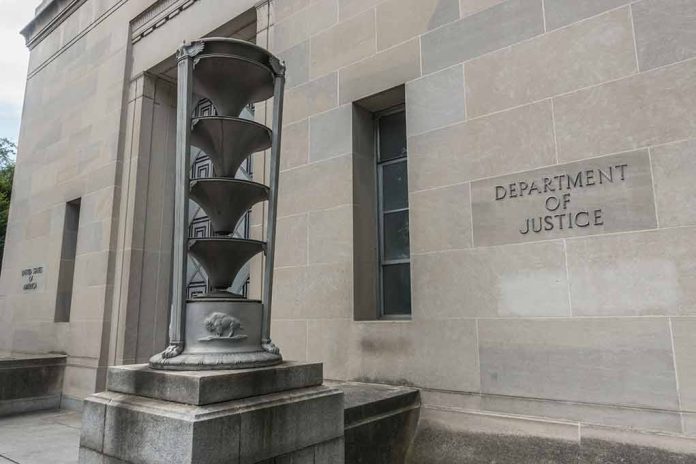
Walgreens will pay up to $350 million to settle federal charges that its pharmacists were pressured to fill invalid opioid prescriptions while the company sought reimbursement from taxpayer-funded healthcare programs.
Key Takeaways
- Walgreens agreed to pay $300 million immediately plus a potential additional $50 million if the company undergoes a corporate transaction before fiscal year 2032.
- The settlement resolves allegations that Walgreens violated both the Controlled Substances Act and the False Claims Act over an 11-year period from 2012 to 2023.
- Pharmacists were allegedly pressured to quickly fill opioid prescriptions despite red flags indicating they were likely invalid.
- The settlement includes comprehensive compliance improvements, including a seven-year agreement with the DEA and a five-year integrity agreement with HHS.
- This case represents the largest Controlled Substances Act resolution in the Northern District of Illinois’s history.
Federal Allegations Against Walgreens
The Justice Department’s complaint alleges that between August 2012 and March 2023, Walgreens pharmacists filled millions of prescriptions for controlled substances that displayed clear warning signs of being invalid. The pharmacy giant allegedly placed undue pressure on its pharmacists to process prescriptions rapidly, prioritizing efficiency over legal compliance and patient safety. According to federal authorities, the company’s compliance officials systematically withheld critical information about questionable prescribers from their frontline pharmacists, hampering their ability to properly evaluate prescription legitimacy.
The settlement addresses violations of both the Controlled Substances Act for improper dispensing and the False Claims Act for submitting these invalid prescriptions for payment to Medicare and other federal healthcare programs. This alleged dual violation significantly increased the company’s legal exposure, as it represents not just regulatory noncompliance but potential fraud against taxpayer-funded programs during a devastating opioid crisis that has claimed hundreds of thousands of American lives.
Walgreens to pay up to $350M for filling illegal opioid prescriptions, Justice Department says https://t.co/gJLmGHEOpL
— FOX Business (@FoxBusiness) April 22, 2025
Settlement Terms and Financial Impact
The $350 million settlement is structured as an initial $300 million payment, with an additional $50 million contingent upon whether Walgreens undergoes a sale, merger, or significant transfer of assets before the end of fiscal year 2032. Four whistleblower cases brought under the False Claims Act will be resolved by this settlement, with the whistleblowers collectively receiving 17.25% of the recovery as allowed by law.
The settlement amount, while substantial, represents just a fraction of the pharmacy chain’s annual revenue. However, the Justice Department emphasized that this represents the largest Controlled Substances Act resolution in the history of the Northern District of Illinois.
Required Compliance Improvements
Beyond the financial penalties, Walgreens faces substantial operational changes under separate agreements with federal agencies. The company must adhere to a seven-year compliance agreement with the Drug Enforcement Administration and a five-year Corporate Integrity Agreement with the Department of Health and Human Services Office of Inspector General. These mandates require Walgreens to implement rigorous prescription validation processes, improve staff training programs, ensure adequate staffing levels, and enhance monitoring systems.
The compliance agreements represent immediate relief by implementing external oversight of Walgreens’ dispensing practices. Under the agreements, Walgreens will face regular audits and reviews to verify adherence to proper dispensing protocols. The company must develop stronger internal controls to identify and respond to suspicious prescribing patterns, potentially preventing future harm to patients and communities affected by prescription drug abuse and diversion.
The case joins numerous other actions against pharmacies, distributors, and manufacturers that have collectively resulted in billions of dollars in settlements nationwide. The Justice Department will dismiss its complaint against Walgreens following completion of the settlement terms. While the company has not admitted wrongdoing, the compliance agreements and financial penalties serve both punitive and corrective purposes. For Walgreens, improving prescription validation processes may help restore public trust while helping future dispensing practices better protect patients from potentially harmful prescriptions.
Sources
- Walgreens agrees to pay up to $350M in opioid prescription settlement
- Walgreens Agrees to Pay Up to $350M for Illegally Filling Unlawful Opioid Prescriptions and for Submitting False Claims to the Federal Government
- Walgreens to pay up to $350M for filling illegal opioid prescriptions, Justice Department says













